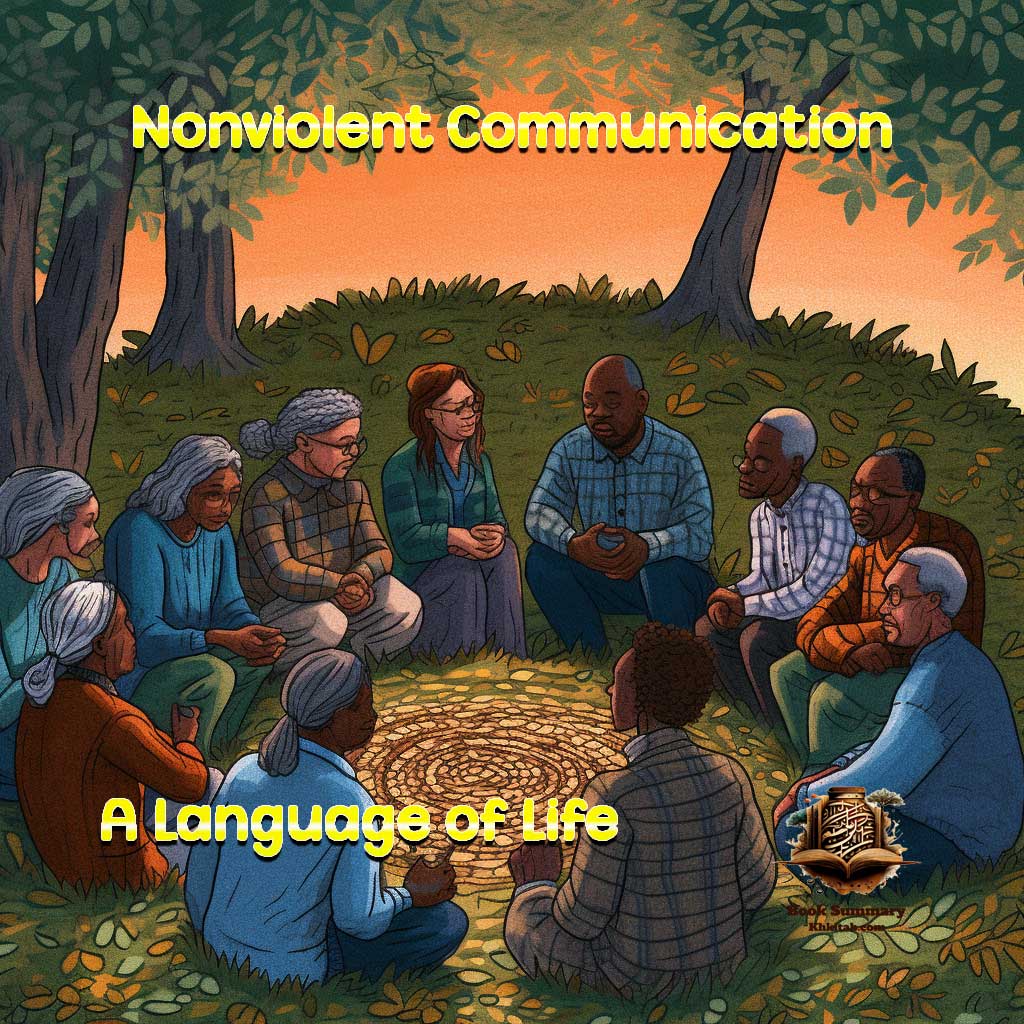Too Nice for Your Own Good: How to Stop Making 9 Self-Sabotaging Mistakes Book Summary

In today’s era, excessive kindness and tolerance are often deemed essential virtues that every individual should embody. But what if being overly kind is detrimental rather than beneficial? In “Too Nice for Your Own Good: How to Stop Making 9 Self-Sabotaging Mistakes”, author Duke Robinson delves into the shadowy side of excessive niceness, illustrating how such behavior can lead to self-sabotage and a forfeiture of personal well-being.
The book is bifurcated into two main sections: the first highlights the pitfalls that overly kind individuals often stumble into, and the second provides pragmatic strategies and solutions to avert these mistakes, thereby constructing healthier, more balanced relationships. As you navigate through its pages, you’ll encounter real-life anecdotes and examples that shed light on the challenges faced by kind-hearted individuals and the means to overcome them.
Whether you’re innately kind-hearted or are striving to strike a balance in your daily interactions, this book will equip you with the necessary tools and insights to safeguard yourself and confront challenges with confidence and resilience.
إقرأ أيضا:Business Genius: Navigating the Labyrinth of Modern Business Strategy and InnovationIs Being Overly Kind Detrimental? Understanding Excessive Niceness in “Too Nice for Your Own Good”
In today’s fast-paced world, kindness is often preached as a virtue, and rightfully so. However, Duke Robinson’s enlightening book, “Too Nice for Your Own Good: How to Stop Making 9 Self-Sabotaging Mistakes,” delves into the intricacies of excessive niceness and its potential repercussions. A key theme Robinson explores is the notion of excessive niceness — but what exactly does this entail?
Excessive niceness, as discussed in the book, refers to a pattern where individuals extend their kindness to the point where it might harm their own well-being or compromise their values. This behavior often stems from a fear of confrontation, a need for validation, or a misunderstood notion of altruism. While being considerate and generous is commendable, there is a delicate balance to maintain.
Robinson posits that being overly kind can lead individuals into a series of self-sabotaging behaviors. For instance, in their quest to avoid conflict or to be seen in a favorable light, they might agree to tasks they cannot fulfill, accept unfavorable terms, or let go of opportunities that come their way. Over time, this not only affects their self-esteem but can also cause burnout, resentment, and strained relationships.
The real-world implications of this behavior are vast. In professional settings, it could lead to being overlooked for promotions or bearing an unfair share of workload. In personal relationships, it might translate to feeling undervalued or being taken for granted.
In essence, while kindness is undeniably valuable, Robinson’s “Too Nice for Your Own Good” prompts readers to reflect on its extent in their lives. The book serves as a guide, helping individuals discern when their kindness is genuine and when it borders on self-sabotage, encouraging a harmonious balance that promotes both personal well-being and healthy interpersonal relationships.
Life Sciences & Medicine – Book Summary (khkitab.com)
Can Avoiding Conflict Be Harmful? Delving into the Perils of Conflict Avoidance in “Too Nice for Your Own Good”
In the realm of personal and professional relationships, the art of navigating conflicts is pivotal. Duke Robinson’s seminal work, “Too Nice for Your Own Good: How to Stop Making 9 Self-Sabotaging Mistakes,” extensively examines the theme of conflict avoidance and its hidden repercussions. When does steering clear of confrontations become a hindrance rather than a helpful strategy?
Conflict avoidance, as articulated in Robinson’s insights, is more than just the act of sidestepping disagreements; it’s a deeply ingrained behavior pattern where individuals, in their quest for harmony, often suppress their genuine feelings and needs. While on the surface, avoiding confrontations might seem like a peaceful approach, it inadvertently leads to a buildup of unsaid emotions, unrecognized grievances, and unmet needs.
This approach, while providing short-term tranquility, can, over time, erode the foundation of relationships and one’s sense of self-worth. By constantly shying away from addressing concerns, individuals risk missing opportunities for growth, deepening understanding, and building stronger, more authentic connections. Furthermore, the book sheds light on how evading conflicts can result in skewed perceptions, where one’s perspective remains unchallenged and personal biases go unchecked.
Robinson encourages readers to understand that facing conflicts head-on, while potentially uncomfortable, can pave the way for clearer communication, better understanding, and enriched interpersonal dynamics. Through “Too Nice for Your Own Good,” one is prompted to rethink conflict avoidance and embrace the transformative power of honest, open discussions.
In essence, avoiding confrontations might offer temporary ease, but its long-term effects can be profound. Robinson’s exploration compels readers to introspect, question, and, most importantly, engage in meaningful conversations, ensuring that the pursuit of peace doesn’t compromise authenticity and personal growth.
Our Facebook Page – Book Summary
How Detrimental is Seeking Approval? Unpacking the Risks in “Too Nice for Your Own Good”
In the interconnected age we live in, external validation seems to be the currency of self-worth for many. Duke Robinson’s notable book, “Too Nice for Your Own Good: How to Stop Making 9 Self-Sabotaging Mistakes,” offers an insightful exploration into the perils of approval seeking. But how exactly does relying on others’ validation impact our sense of self?
Approval seeking, as Robinson deftly illustrates, is not merely about wanting to be liked or appreciated. It is a deep-seated behavior where individuals often prioritize others’ perceptions and opinions over their own genuine feelings, beliefs, and desires. This behavior, stemming from a core need to be accepted, can overshadow one’s true self, masking genuine identity with a facade molded by societal expectations.
While it’s natural for humans to desire social acceptance, “Too Nice for Your Own Good” underscores that the excessive quest for validation can lead to feelings of insecurity, self-doubt, and even resentment. Continually relying on external affirmation means that one’s self-worth becomes contingent on external factors, often volatile and unpredictable. This can culminate in emotional exhaustion and dependence, where happiness becomes tethered to others’ reactions.
Robinson further emphasizes that in this continuous cycle of seeking approval, individuals might forgo opportunities, suppress authentic emotions, and compromise personal values, all to fit into a mold they believe will earn them more validation.
Through “Too Nice for Your Own Good,” readers are prompted to recognize and challenge their approval-seeking tendencies. Robinson encourages a shift towards self-reliance, advocating for a self-worth that’s rooted in self-awareness and authenticity rather than fleeting external validations. The book is a call to reconnect with one’s intrinsic value, embracing genuine identity, and understanding that true contentment and confidence come from within.
Does Over-Apologizing Undermine Your Confidence? Insights from “Too Nice for Your Own Good”
In an age where interpersonal skills are crucial, the art of apologizing plays an essential role in maintaining healthy relationships. However, there’s a thin line between genuine accountability and over-apologizing. Duke Robinson’s “Too Nice for Your Own Good: How to Stop Making 9 Self-Sabotaging Mistakes” delves deep into the phenomenon of excessive apologies and the accompanying sense of unwarranted guilt. But when does saying “sorry” too often become self-sabotaging?
Over-apologizing, as explained in Robinson’s profound insights, often stems from a place of insecurity and a desire to avoid potential conflicts or disapproval. While apologies are indeed a bridge to understanding and reconciliation, excessive and unnecessary apologies can erode one’s sense of self-worth. This pattern of constantly saying sorry, even when not at fault, can send a message of diminished self-confidence and can be perceived as a sign of weakness.
Robinson highlights the implications of this behavior: By routinely shouldering blame, individuals can attract undue criticism and may be more prone to be taken advantage of in various scenarios, both personally and professionally. Moreover, the consistent weight of undue guilt can lead to emotional drain, stress, and even affect mental health over time.
The book prompts readers to recognize and challenge their over-apologizing tendencies. Rather than resorting to habitual apologies, Robinson champions the cause of self-awareness and understanding one’s worth. By addressing the root causes of this behavior, individuals can reclaim their confidence and ensure their apologies are sincere, warranted, and effective.
In essence, while apologies are an integral part of human interaction, “Too Nice for Your Own Good” underscores the importance of ensuring they remain genuine reflections of accountability rather than becoming habitual expressions of unwarranted guilt.
Can Being Too Agreeable Backfire? Unveiling the Dangers in “Too Nice for Your Own Good”
In a world that values collaboration and teamwork, the capacity to accommodate and be agreeable is often seen as a virtue. However, Duke Robinson’s “Too Nice for Your Own Good: How to Stop Making 9 Self-Sabotaging Mistakes” presents a cautionary exploration into the hidden dangers of an excessive inability to say “no.” When does being accommodating cross the line and become detrimental?
Robinson dives deep into the mindset of those who find it challenging to decline requests or set boundaries. Being overly agreeable, as the book elucidates, can stem from a myriad of reasons: a deep-seated need for approval, fear of conflict, or simply a misguided belief that constant agreement is the key to harmonious relationships. But, in reality, the inability to say “no” can lead to overwhelm, burnout, and resentment.
Failing to establish personal boundaries can result in feeling stretched thin, sacrificing personal needs, and constantly placing others’ priorities over one’s own. Moreover, being persistently compliant can paint a picture of someone who lacks assertiveness, potentially leading to reduced respect from peers and superiors. It might even pave the way for opportunists to take advantage.
Robinson underscores the significance of balance. While adaptability and a cooperative spirit are laudable, it’s equally critical to recognize and act upon personal limits. “Too Nice for Your Own Good” encourages readers to introspect, understand their reasons for being excessively agreeable, and cultivate the courage to say “no” when necessary.
In essence, the book serves as a reminder that assertiveness and self-respect are as vital as being accommodating. Robinson prompts readers to embrace the power of “no” and understand that genuine respect and harmonious relationships are built on mutual understanding and not just unilateral agreement.
Is Over-Compensation Undermining Your Well-being? Delving into the Perils in “Too Nice for Your Own Good”
One of the hallmarks of empathetic individuals is their innate desire to assist and make things right. Yet, this commendable trait can sometimes veer into the territory of over-compensation, a concept profoundly discussed in Duke Robinson’s “Too Nice for Your Own Good: How to Stop Making 9 Self-Sabotaging Mistakes.” So, when does taking responsibility for others’ actions or feelings transition from being supportive to self-sabotaging?
Robinson identifies over-compensation as the act of shouldering excessive blame or responsibility for situations, often out of a misplaced sense of duty or guilt. By habitually stepping in to “fix” things or trying to absorb others’ emotions and problems, individuals risk not only depleting their emotional reserves but also reinforcing unhealthy dynamics in relationships.
There are inherent dangers to this pattern. Firstly, it could obscure the lines of accountability, preventing others from facing the consequences of their actions, and inhibiting their personal growth. By constantly coming to the rescue, one might inadvertently deprive others of crucial life lessons. Secondly, the continual emotional labor can lead to burnout, resentment, and an eroded sense of self-worth, as individuals start valuing themselves based on their capacity to shoulder others’ burdens.
“Too Nice for Your Own Good” urges readers to strike a balance. While compassion and support are invaluable, it’s crucial to differentiate between genuine help and unhealthy over-compensation. Robinson advocates for establishing clear boundaries, recognizing one’s limits, and fostering a mutual sense of responsibility in relationships.
In conclusion, while the intent behind over-compensation might be noble, Robinson’s insights shed light on the potential pitfalls. The book serves as a reminder that true support involves empowering others to face challenges, rather than perpetually taking them on oneself. After all, is it not more beneficial in the long run to teach someone to fish, rather than consistently handing them one?
Does Boundless Tolerance Undercut Your Dignity? Insights from “Too Nice for Your Own Good”
Boundless tolerance may appear, at first glance, as an admirable trait, epitomizing patience and understanding. However, where should one draw the line between patience and self-disrespect? Duke Robinson’s “Too Nice for Your Own Good: How to Stop Making 9 Self-Sabotaging Mistakes” provides an incisive exploration into the adverse consequences of endless tolerance, particularly when it translates to enduring poor treatment or disrespect. But how detrimental can excessive tolerance be for one’s mental well-being and self-worth?
Robinson suggests that an unchecked tolerance could be one’s worst enemy. It’s not uncommon to find individuals who tolerate poor treatment, either because they believe it’s their duty, they fear conflict, or they hope for change. But continually enduring disrespect can erode self-esteem, instill feelings of unworthiness, and promote toxic relationships.
Endless tolerance can have cascading repercussions. Not only does it embolden the offender, but it also sends a message to others that such behavior is acceptable. The individual tolerating this behavior might inadvertently find themselves setting a precedent, where they become a magnet for those seeking to take advantage or undervalue them.
In “Too Nice for Your Own Good,” Robinson emphasizes the importance of establishing boundaries. While kindness and understanding are essential, it’s equally crucial to recognize when one is compromising their dignity for the sake of appeasement. The book offers strategies to assert oneself, establish respect, and ensure that tolerance doesn’t become a self-imposed trap.
In essence, while tolerance is a virtue, it should never come at the cost of one’s self-respect or well-being. As Robinson’s insightful book highlights, standing up for oneself and setting limits is not only a right but a necessity for a balanced and healthy life. So, should endless tolerance always be celebrated, or is it time to reevaluate and understand its implications better?
Are You Overextending Yourself? Unveiling the Dangers of Self-Sacrifice in “Too Nice for Your Own Good”
Many of us are conditioned to believe that putting others’ needs before our own is a noble act, a sign of true generosity and kindness. But where do we draw the line between being compassionate and self-sacrificial to our detriment? The renowned book, “Too Nice for Your Own Good: How to Stop Making 9 Self-Sabotaging Mistakes,” by Duke Robinson, delves deeply into this concern. Specifically, how can continuously sacrificing one’s needs for the sake of others backfire, and what are the repercussions?
Robinson pinpoints self-sacrifice as a subtle form of self-sabotage. When we perpetually put others’ desires and needs ahead of our own, we might initially feel a sense of nobility. However, over time, this repeated behavior can lead to feelings of resentment, emotional exhaustion, and even a loss of identity. Ignoring one’s own needs, desires, or boundaries in favor of others’ can diminish one’s sense of self-worth and value.
This relentless self-sacrifice may stem from various sources: societal expectations, personal upbringing, or even past experiences that shaped one’s perception of self-worth. Such behavior, although seemingly selfless, can inadvertently create an imbalanced dynamic in relationships. It allows others to take more than they give, creating a cycle where the self-sacrificing individual feels undervalued and overburdened.
Within the pages of “Too Nice for Your Own Good,” Robinson offers practical advice on recognizing these patterns and ways to break free from them. Establishing boundaries, prioritizing self-care, and learning to say “no” are essential steps in ensuring that kindness doesn’t transmute into self-neglect.
In essence, while altruism and generosity are admirable traits, they should not come at the expense of one’s well-being. Robinson’s insights underscore the importance of balance. So, it poses the question: How can one care for others if they consistently neglect their own needs and well-being?
Why is Setting Boundaries Crucial for Personal Well-being? Insights from “Too Nice for Your Own Good”
Setting boundaries has always been a topic of contention, especially in cultures that prioritize collectivism and group harmony. Many often grapple with the guilt of potentially being perceived as “selfish” or “inconsiderate” when they put their needs first. However, the renowned book, “Too Nice for Your Own Good: How to Stop Making 9 Self-Sabotaging Mistakes,” by Duke Robinson, argues that establishing personal boundaries is not just beneficial but essential for one’s mental and emotional well-being.
Robinson posits that boundaries are the invisible lines we draw around ourselves to signify what we will and will not tolerate. They are reflections of our self-worth, our values, and our personal limits. Without boundaries, we become susceptible to burnout, emotional exhaustion, and even exploitation.
People often misconstrue setting boundaries with being unkind or selfish. However, Robinson elucidates that it’s quite the opposite. Establishing clear boundaries means valuing oneself enough to prioritize personal well-being, which, in turn, allows us to show up more genuinely and generously in our relationships. When we allow our boundaries to be compromised consistently, it can lead to feelings of resentment, anger, and a diminished sense of self.
Throughout “Too Nice for Your Own Good,” readers are presented with practical advice on how to identify when their boundaries are being tested and strategies to assert and maintain them. Robinson emphasizes that it’s not about shutting people out but rather creating a safe space for oneself to thrive.
In summary, while altruism and empathy are admirable qualities, they shouldn’t come at the expense of one’s personal boundaries. As Robinson’s insightful work suggests, setting boundaries is an act of self-respect and a cornerstone for healthy relationships and personal growth. It begs the question: Have you considered where your boundaries lie and the importance of safeguarding them for your well-being?
How Can Assertiveness Cultivate Balanced Interactions? Insights from “Too Nice for Your Own Good”
In a world where passive or aggressive communication can dominate, finding the middle ground—assertiveness—can seem elusive. “Too Nice for Your Own Good: How to Stop Making 9 Self-Sabotaging Mistakes” by Duke Robinson sheds light on the significance of assertiveness as an essential tool for effective communication and maintaining self-respect.
Robinson emphasizes that being assertive doesn’t mean being confrontational or aggressive; it’s about expressing oneself clearly, respecting both one’s own rights and the rights of others. It involves standing up for oneself without trampling on someone else. At its core, assertiveness is about balance—balancing one’s needs with the needs of others.
One of the pitfalls many face, as highlighted in the book, is the confusion between being kind and being overly submissive. A failure to communicate needs, desires, and boundaries can lead to feelings of resentment, being taken for granted, or even fostering toxic dynamics in personal and professional relationships. Robinson provides readers with practical tools and techniques to develop assertiveness, emphasizing the importance of active listening, using “I” statements to express feelings and needs, and setting clear boundaries.
Another essential point Robinson raises is the distinction between responding and reacting. While reactions are often immediate and driven by emotion, responses are more measured, thought-out, and assertive. Cultivating this distinction enables individuals to handle confrontations more effectively, ensuring that their communication remains respectful and productive.
In conclusion, “Too Nice for Your Own Good” offers valuable insights into the role of assertiveness in building healthier, more balanced relationships. Assertiveness, as Robinson articulates, is not about winning an argument or having the upper hand; it’s about mutual respect and understanding. So, the pertinent question is, are you equipped with the tools to communicate assertively and maintain the balance in your interactions?
How Can Embracing Mutual Respect Lead to Healthier Relationships? Insights from “Too Nice for Your Own Good”
Relationships form the bedrock of human experiences. They can either nurture our spirit or deplete our energy. Ensuring they are genuine and reciprocal is essential for personal well-being. In the enlightening book “Too Nice for Your Own Good: How to Stop Making 9 Self-Sabotaging Mistakes,” Duke Robinson sheds light on the importance of mutual respect in the realm of relationships.
Robinson articulates that often, in the quest to be liked or avoid conflicts, individuals tend to compromise their values or suppress their needs. This might lead to transient peace but eventually fosters resentment, misunderstanding, and detachment. The crux of the matter is not just about being “too nice,” but rather about neglecting one’s boundaries and self-worth.
Mutual respect is the cornerstone of any healthy relationship. It signifies that both parties acknowledge, value, and consider each other’s feelings, needs, and boundaries. It’s a two-way street. Without it, relationships can become one-sided, with one party constantly giving and the other continually taking.
“Too Nice for Your Own Good” accentuates that relationships grounded in mutual respect are more fulfilling and sustainable. Such relationships don’t equate love with self-sacrifice. Instead, they emphasize equality, open communication, and a shared sense of understanding. It’s about creating a balance where both individuals feel seen, heard, and valued.
Additionally, Robinson offers practical advice on setting boundaries and communicating them effectively. He suggests introspection to understand one’s values and needs and to assert them without feeling guilty. This not only fosters self-respect but also encourages partners to recognize and appreciate these boundaries.
In conclusion, “Too Nice for Your Own Good” serves as a pivotal guide to building and nurturing relationships rooted in mutual respect and understanding. If a relationship doesn’t enhance your life, it might be time to reflect, recalibrate, and, if necessary, move on. After all, isn’t the essence of any genuine relationship centered on mutual respect and admiration?








